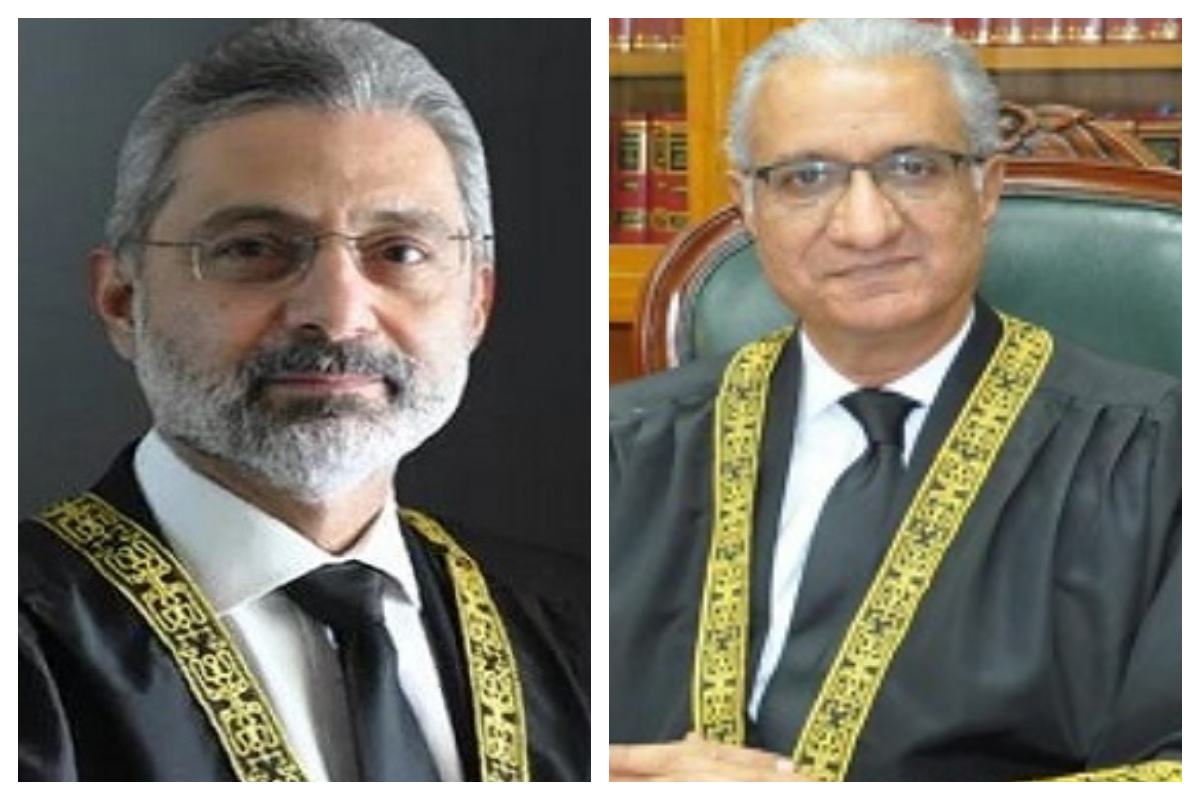ISLAMABAD: Chief Justice of Pakistan (CJP) Qazi Faez Isa on Tuesday responded to objections raised by Justice Ijazul Ahsan regarding the formation of benches hearing the appeals against the Supreme Court’s verdict on the military trials of civilians and Justice Sayyed Mazahar Ali Akbar Naqvi’s petitions.
Justice Ahsan, part of the three-judge committee responsible for determining case fixation before different benches, had emphasized the adherence to seniority in judges’ rule for transparency. \The committee consists of CJP Isa, Justice Sardar Tariq Masood, and Justice Ahsan.
In a letter to the committee’s secretary, Justice Ahsan expressed regret that two special benches, formed for intra-court appeals in the military court case and Naqvi’s petition challenging a Supreme Judicial Council (SJC) show-cause notice, respectively should, be “deemed as not set up by the committee”.
He claimed that the committee was not consulted on these matters.
In response, CJP Justice Qazi Faez Isa dismissed Justice Ahsan’s accusations as “contrary to the record and the facts.” The chief justice noted that Justice Ahsan had not reached out or expressed concerns despite an open-door policy, questioning the lack of communication. He emphasized his commitment to consultation, citing the suspension of the Act’s operation by a bench including Justice Ahsan.
“You [Ahsan] allege that you have not been consulted with regard to the constitution of benches. My door is always open to all my colleagues, I am also available on intercom and via cell phone, but surprisingly you neither came to talk to me nor reached out to me to express your concerns,” the chief justice noted.
[embedpost slug=”justice-ijazul-ahsan-expresses-reservations-on-formation-of-sc-benches/”]
CJP Isa further said he leant that Justice Ahsan had left for Lahore, early Friday afternoon and “before the end of the working day”.
“If I did not want to consult either you or Justice Sardar Tariq Masood, would I have supported, believed an imposed the process of consultation on myself when a Bench, of which you were a member, had suspended the operation of the Act?” he asked.
Justice Isa reminded the Supreme Court judge of his first order he signed after assuming the responsibility of the office of the Chief Justice of Pakistan – which stated that he would consult with his two senior colleagues with regard to the constitution of Benches and fixation of cases.
Justice Isa reminded Justice Ahsan of his first order as Chief Justice, pledging to consult with senior colleagues on bench formation and case fixation. He challenged the idea that he did not abide by committee decisions, pointing out the committee’s meetings were delayed or canceled due to various reasons, including Justice Ahsan’s non-availability.
Addressing the allegations, CJP Isa asserted that every judge is treated equally in bench formation, and special benches are not created for specific cases or to include or exclude judges. He termed Justice Ahsan’s accusations as contrary to the record and facts, expressing readiness to convene a committee meeting if suggestions for bench reconstitution were provided by the Supreme Court judge.
“The constitution of Benches also demonstrates that every Judge is treated equally and with respect, and special benches are not made for particular cases and to include or exclude Judges,” he added.
Dubbing Justice Ahsan’s accusations “contrary to the record and the facts”, CJP Isa said that he would convene a meeting of the Committee if the SC judge had any “suggestions for the reconstitution of Benches”.



















